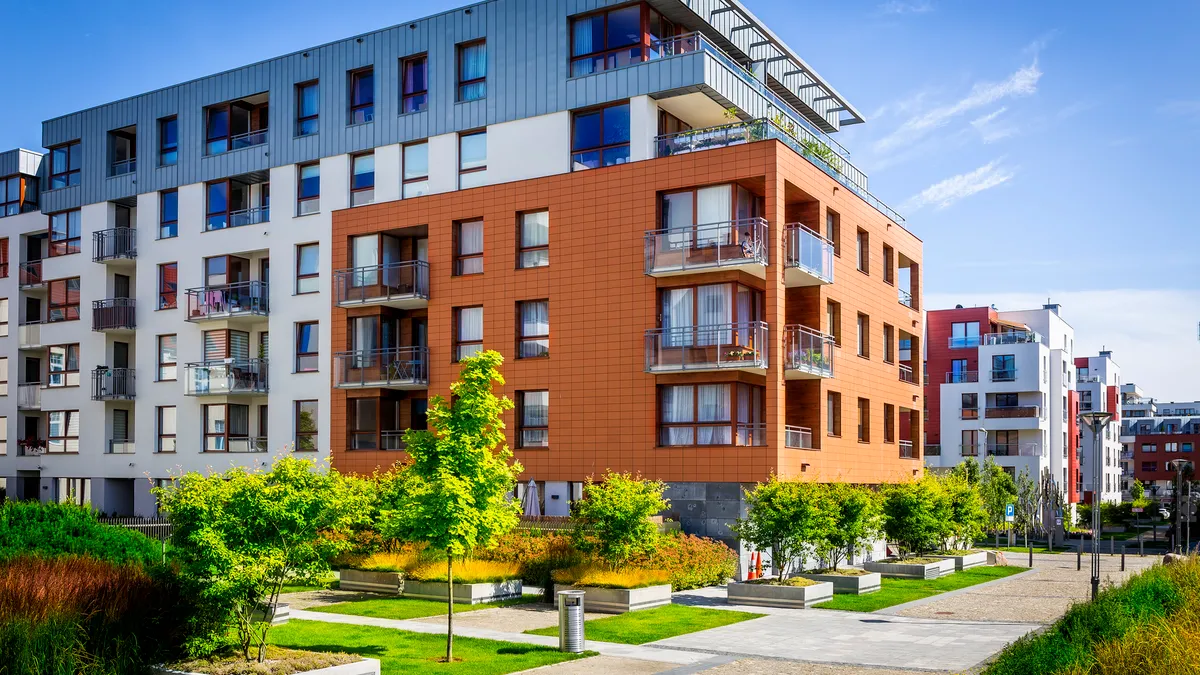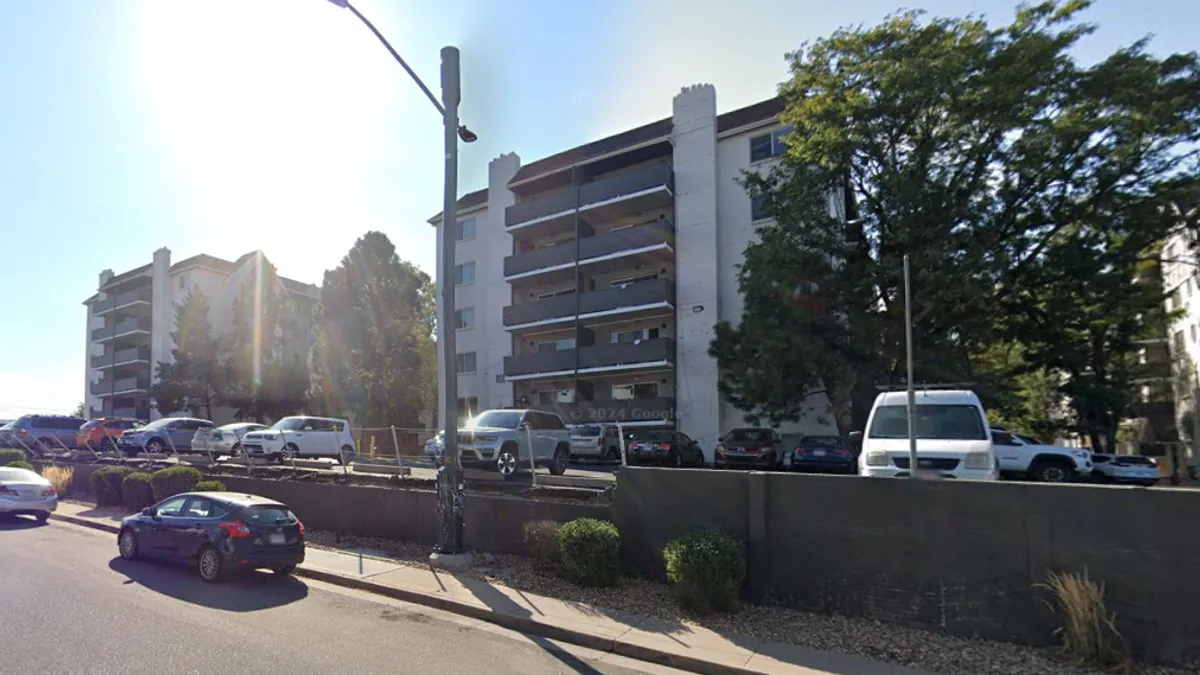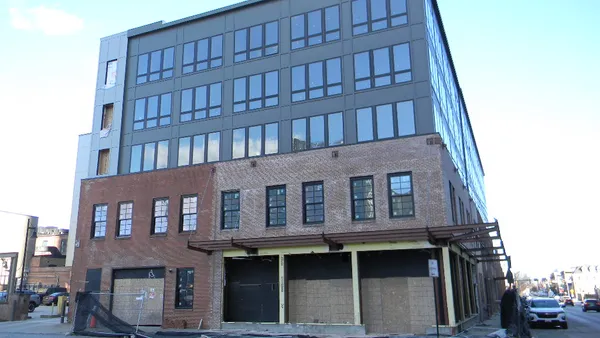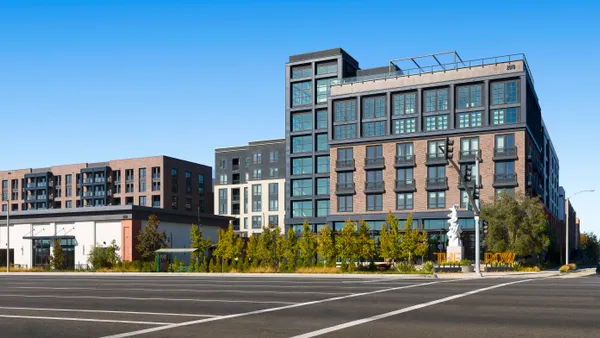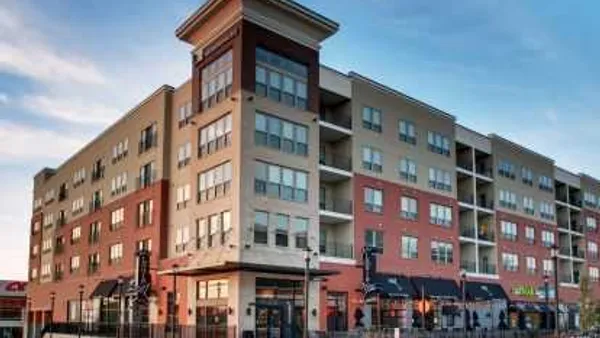Dive Brief:
- Apartment sales fell 17% to $294.1 billion in 2022, according to a report that data firm MSCI Real Assets shared with Multifamily Dive.
- The fourth quarter wasn’t kind to the apartment industry, when the segment saw a 69% decrease in sales to $50.4 billion. Still, the sector posted the highest volume of any commercial real estate segment for the year.
- Multifamily prices fell 1.9% from November to December, representing the largest decline in commercial real estate, according to MSCI. Annual growth fell from more than 20% earlier in the year to 1.8% in December.
Dive Insight:
Sale volume for garden apartments fell 18% during 2022, while mid- and high-rise properties experienced a 15% decline. Garden prices rose 4% year over year, and mid- and high-rise saw a decline of 3%. MSCI said that was the largest decline for the segment since 2010.
The culprit behind falling prices and declining sales was rising interest rates, which increased costs for borrowers.
“Obviously, the Fed was hiking funds,” said Thomas Carroll, founder and CEO of Charleston, South Carolina-based owner and manager Ballast Rock Group. “At the same time, that was driving what's going on in the long end of the market, which ultimately drives our cost of borrowing.”
As that happened, owners were unlikely to give major discounts to offset these higher costs unless they were forced to sell. “Sellers were not being realistic and adjusting cap rates in line with the increased cost of borrowing,” Carroll said.
The disconnect between buyer and seller expectations is why some companies, like Ballast Rock Group, briefly stopped buying. “We actually entirely paused acquisitions for about six months during 2022,” Carroll said.
However, Carroll got back into the market in October. “By the end of the year, we started to see sellers, on occasion, being a bit more realistic,” he said.
Still, Carroll hasn’t seen widespread discounts, which is probably why prices only fell 1.9%.
“Most sellers are still expecting to sell at 2021 prices, and buyers are not willing to buy at 2021 prices because they can't make the math work on their financing,” he said.
In 2023, Caroll thinks he will be able to make some opportunistic buys but could also see rate hikes ending, which would stabilize pricing. Others think there will be more distressed sales, further eroding pricing.
As people have to put in cash to refinance their properties because interest rates have gone up, Adam David Lynd, president and CEO of Shavano Park, Texas-based apartment developer, manager and owner The Lynd Group, thinks there will be more forced sales.
“When you force the sale, you’re going to sell at higher cap rates,” Lynd said. “The minute the appraisers have those cap rates they can point to, everyone's values go [down] immediately.”
Click here to sign up to receive multifamily and apartment news like this article in your inbox every weekday.



